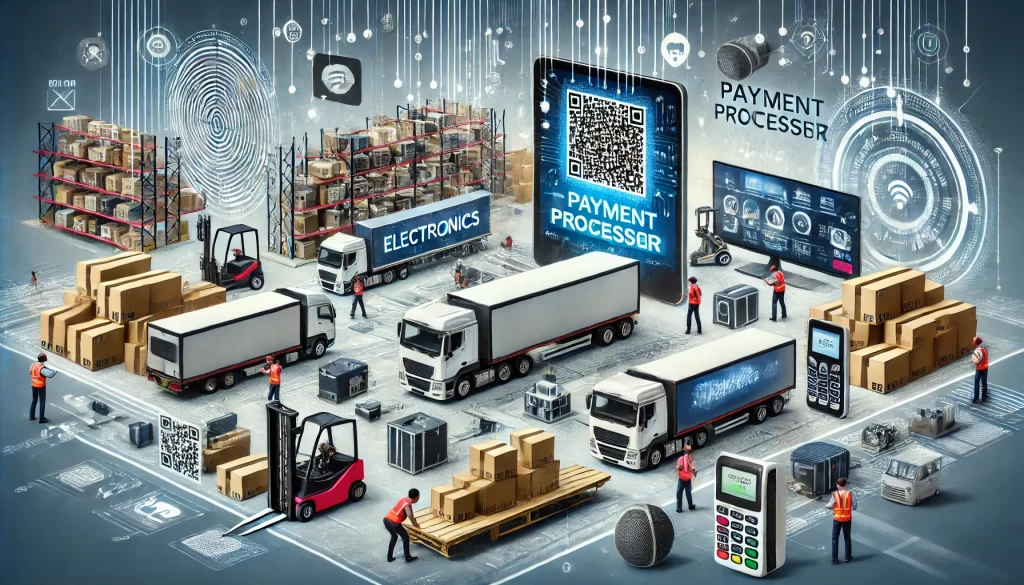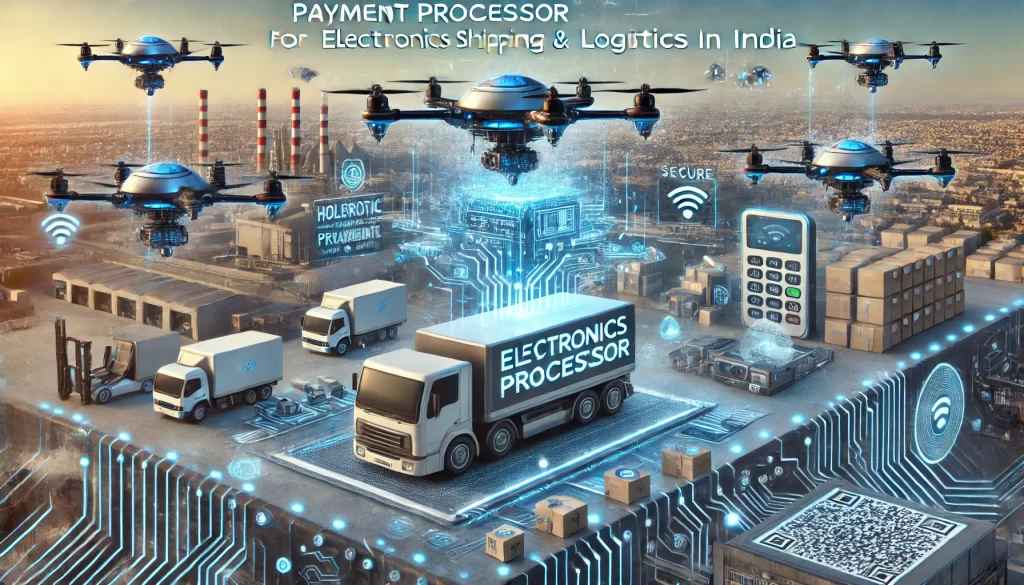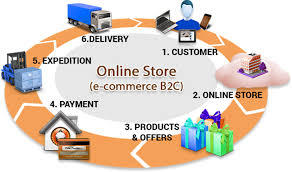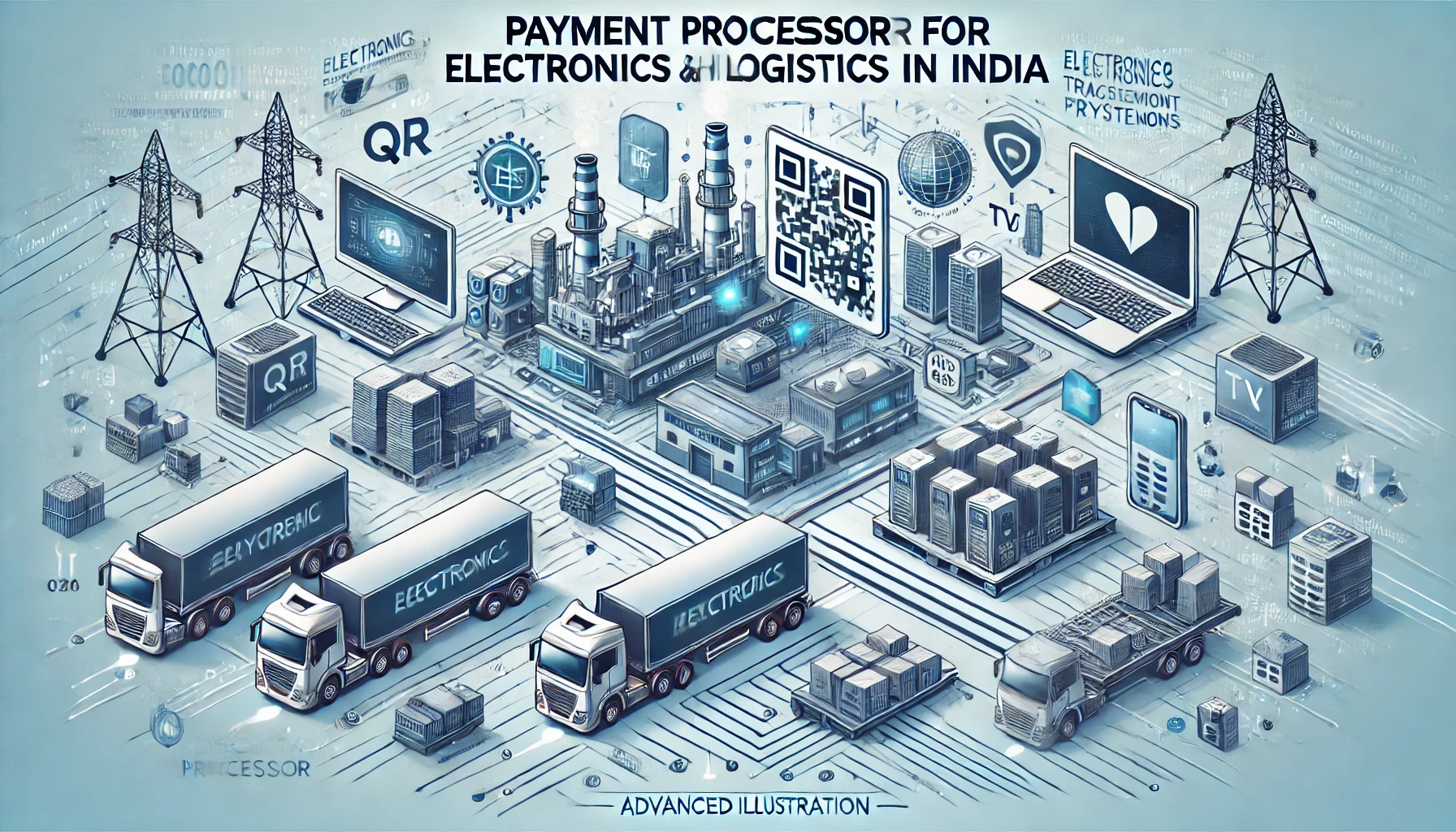Author : Shin Hari
Introduction
In the fast-paced world of electronics, payment processing and logistics play critical roles in ensuring smooth transactions and timely deliveries. India, with its burgeoning electronics market, has seen a significant evolution in both payment systems and the logistics infrastructure necessary to handle the growing demand. This article explores the current landscape of payment processors, electronics shipping, and logistics in India, focusing on the key challenges and innovations shaping the industry.
What is Payment Processing in the Context of Electronics?
Payment processing in electronics refers to the system that enables transactions for the purchase of electronic goods. Whether it’s an online purchase or an in-store sale, payment processors are responsible for securely handling customer payments. These systems are vital for ensuring that both buyers and sellers can engage in seamless transactions[1], especially when high-value electronics are involved.
The Growing Electronics Market in India
India’s electronics market has grown exponentially in recent years. With the increasing demand for smartphones, home appliances, and computers, India is now one of the largest consumer markets for electronics in Asia. India’s electronics market may exceed $400 billion soon. This surge in demand places additional pressure on both payment processors[2] and logistics providers to meet consumer expectations.
Key Payment Processors for Electronics in India

India is home to a wide array of payment processors that cater to the electronics sector. Leading companies like Paytm, Razorpay, and PhonePe are at the forefront of payment processing, offering seamless, secure payment methods such as credit cards, UPI (Unified Payments Interface), and digital wallets. These processors ensure that transactions for electronic goods[3] are completed quickly and securely, which is essential in a high-demand market.
Payment Gateway Providers in India
Payment gateways act as intermediaries between the consumer and the merchant, facilitating the transaction process. For electronics transactions in India, payment gateways such as PayPal, Instamojo, and BillDesk are crucial. They encrypt sensitive data and ensure seamless payment processing. These platforms have become the backbone of online electronics sales in India, providing customers with multiple options to pay for their purchases.
Challenges Faced by Payment Processors in Electronics Shipments
One of the primary challenges faced by payment processors in the electronics industry is security. High-value items, like smartphones and laptops, make attractive targets for fraud. To counteract these risks, payment processors must implement robust security measures, such as two-factor authentication and encryption, to protect customer data and minimize fraud. Furthermore, issues related to internet infrastructure and payment system reliability often pose significant challenges, particularly in remote areas.
Shipping and Logistics for Electronics in India
Shipping and logistics play a crucial role in ensuring the timely delivery of electronic goods. The complexity of electronics shipping[4] in India lies in the need for specialized handling, secure packaging, and compliance with safety standards. Companies like Delhivery, Blue Dart, and Ecom Express have become key players in the logistics sector, providing services tailored to the transportation of electronics. Efficient logistics solutions ensure that customers receive their electronic products in optimal condition, minimizing the risk of damage during transit.
Factors Affecting Electronics Shipping in India
Several factors impact electronics shipping in India. Delivery time and cost are among the most important considerations for consumers. Fast shipping has become crucial, with consumers expecting electronics delivery in just days.. Additionally, packaging plays an important role in ensuring that delicate items, like smartphones and laptops, arrive safely. Specialized packaging protects electronics from shocks, moisture, and other hazards during shipping

The Importance of Secure Payment Systems in Electronics Shipments
For high-value electronics, security in both payment and shipment is paramount. When dealing with expensive items, customers expect not only a smooth transaction process but also the assurance that their purchases are safe from fraud. Payment processors secure data with encryption, while logistics firms ensure timely, safe deliveries with tracking.
Technological Innovations in Payment Processing and Shipping
Technology is continuously evolving in both payment processing and logistics. Digital wallets, AI payment solutions, and automation are reshaping electronics sales and shipping in India.. Digital payment[5] solutions such as Google Pay and Amazon Pay offer convenience, while AI and automation in logistics help reduce errors and improve efficiency. For instance, predictive analytics can help logistics companies optimize delivery routes, reducing both time and cost.
Impact of E-commerce on Electronics Shipping and Payment Processing

E-commerce has revolutionized the electronics market in India. Online platforms such as Amazon, Flipkart, and Snapdeal have made it easier for consumers to purchase electronic products from the comfort of their homes. This has created an even greater need for efficient payment processing and logistics systems to handle the volume of transactions and shipments. E-commerce has also led to the growth of digital payment methods, with consumers preferring online payment options for their convenience.
Challenges in Logistics: Managing Returns and Exchanges
Managing returns and exchanges is a significant challenge in the electronics sector. Unlike other consumer goods, electronics are often more susceptible to damage, and their return processes can be complex. Payment processors play a vital role in handling refunds and ensuring that the transaction is reversed correctly, while logistics companies are responsible for facilitating the return shipments and ensuring that items are returned in good condition.
Regulations Impacting Payment Processing and Logistics in India
India has a stringent regulatory framework governing both payment processing and logistics, especially for electronics. The Reserve Bank of India (RBI) has set clear guidelines for digital payments, while the Directorate General of Foreign Trade (DGFT) governs the import and export of electronic goods. These regulations ensure that the electronic supply chain remains secure and that transactions are conducted within the legal framework.
Future Trends in Payment Processing and Electronics Shipping
The future of payment processing and electronics shipping in India looks promising, with the rise of digital wallets and cryptocurrencies playing a significant role in transforming payment methods. Additionally, advancements in logistics technology, such as drones and autonomous vehicles, are expected to streamline the delivery process and further reduce shipping times.
Conclusion
Payment processing and logistics are integral to the success of the electronics market in India. As the demand for electronic products continues to rise, both payment systems and shipping services must evolve to meet consumer expectations. The future of this industry in India is filled with potential, with advancements in technology paving the way for even more seamless and efficient transactions and deliveries.
FAQs
- What are the main payment processors for electronics in India?
- Leading payment processors in India include Paytm, Razorpay, and PhonePe, which offer a range of payment methods for electronics transactions.
- How do logistics companies handle electronics shipments?
- Logistics companies use specialized packaging and handling techniques to ensure that electronics are safely transported and delivered in good condition.
- What are the challenges faced by payment processors in the electronics market?
- Key challenges include security risks, fraud prevention, and technological barriers in remote areas.
- How has e-commerce affected electronics shipping and payment processing?
- E-commerce has led to a surge in online electronics sales, driving demand for faster shipping and more secure payment methods.
- What technological innovations are shaping the future of payment processing and logistics?
- Digital wallets, AI-driven payment systems, and automation in logistics are all transforming the landscape of electronics shipping and payment processing.

